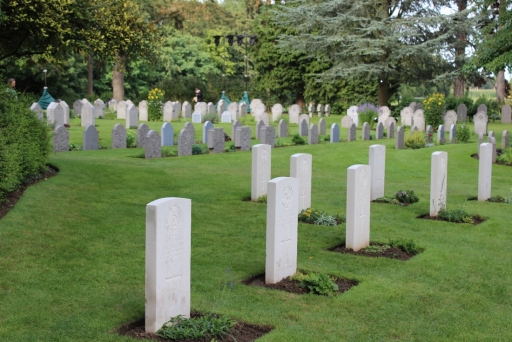Centenary News Editor, Nigel Dacre, spent August 4th 2014 in Belgium – attending the Liège and Mons events. He sent in reports and photos for Centenary News from both locations, but here’s his personal account, looking back on the events.
Reflections on August 4th
It was a long, tiring day. Starting early in the morning in Liège to see European leaders gather at the Inter-Allied Memorial – and then travelling across Belgium to attend the evening event at the St Symphorien Cemetery at Mons.
But it allowed me to get a useful insight into how Europe is dealing with the legacy and memories of the First World War – 100 years since it started, and close to where the fighting in August 1914 had actually taken place.
It was clear to me that there continues to be marked differences in the way that Europe’s different countries view the war.
Britain and Belgium
In Britain, the conflict is undoubtedly regarded by most people as a tragic event, something to be remembered and respectfully commemorated. But it is also, I think, a war that is, in general, viewed with a sense of pride – for the courage shown in adversity, the humour that surfaced in the most difficult of circumstance, and even for the poetry and music.
David Cameron caught the sadness, when he spoke at St Symphorien of, “…the millions of mothers and fathers who would have stood on their door-step, waving their sons off, not knowing if they would ever see them again.”
But the cheerful bravery was also underlined – Prince Harry, for instance, reading the letter of Private Lennon, who wrote to his brother, just before he died, hoping he wouldn’t get “bowled out”.
In Belgium, I sensed that, on the whole, people believe that their nation had behaved well in the war – particularly in the way that ‘tiny Belgium’ and the fortresses of Liege had steadfastly resisted the German advance, giving the French and British crucial extra time.
France and Germany
The French, though, appear to have understandably mixed feelings about a war which killed so many of their men, and which saw parts of their country turned into muddy, body-strewn battlefields.
At Liège, Francois Hollande was more interested in talking about the dangers to peace today in Ukraine and the Middle East, than in recalling, in any detail, the role of France in the war.
But it was Germany that found the August 4th anniversary the most difficult and uncomfortable.
Indeed, for me, one of the most memorable parts of the day, was the German President Joachim Gauck’s blunt acceptance that the German invasion of Belgium in 1914 had been “completely unjustifiable”, that the conduct of the German troops in Belgium had “horrified” the world, and that the invasion had been followed by “misfortune, misery, crippling injuries and death to millions of people.”
It’s not the first time that he has expressed these sentiments, but to say them so clearly, and to use such strong language, standing at a podium in Belgium on the 100th anniversary of German troops entering Belgium, was unambiguous and striking.
St Symphorien
Whereas the morning event at Liège was mainly about European leaders making speeches and laying wreaths, a key focus of the evening commemoration in Mons was listening to the views of ordinary soldiers and relatives.
In fact, the event at St Symphorien could, in my view, have gone badly wrong. After all, TV presenters and singers were seen walking across and performing on the graves of the soldiers buried there. It could so easily have been interpreted as insensitive and disrespectful.
But it actually worked really well. It was dignified and tasteful. The use of current serving soldiers, both British and German, and relatives of those who had died, standing amongst the headstones to read extracts of letters from those who had fought in the conflict, gave a powerful voice to those buried nearby.
Of course, St Symphorien was also a highly appropriate place for the evening event. Roughly the same number of British and German graves; the last resting place for the both the first Briton to be killed in the war and the last; and the fact that the cemetery had been opened by the Germans and then, after the war, taken over by the Commonwealth War Graves Commission. All of this made for an ideal location.
It is also a beautiful cemetery, with pine trees, large bushes, and trailing ivy providing a lush, verdant backdrop to the neat and clean rows of tombstones.
All credit, then, to the producers of the event: it was a fitting and moving way to remember the war.
Press Coverage
I was travelling in Belgium with the British contingent of journalists and photographers. The UK newspapers had sent some of their top writers to cover the events.
The Daily Mail’s Robert Hardman filed a beautifully written feature – which ended: “On a day of grand productions and thoughtful oratory … nothing could match the simple, eternal poignancy of a row of Portland headstones in a corner of a foreign field exactly a century on from the night those lamps went out and a sepulchral gloom enshrouded the world.”
Indeed, in the UK, the centenary events on August 4th were very much front page news – the call for lights out was more observed than many had predicted, and the photos of William and Kate at St Symphorien were widely shown.
It may not be normal to hold events marking the beginning of a conflict. Countries usually wait until the end of wars to organise commemorative events. But the scale and impact of the First World War meant it was right, in my view, to break with tradition.
On August 4th 2014, 100 years after Germany invaded Belgium and Britain entered the conflict, Europe came together on the old battlefields to remember, in new ways, both the cost and the lessons of the war.
